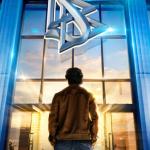A blog on the STAND website by Roger Clark gives insight into the result of media bigotry on the lives of Scientologists and the simple truth about Scientology that no one can argue with. Republished courtesy of STAND.
Don’t Tell Me. SHOW Me.
My father was a brilliant man. He held a doctorate in law, was literate in both Spanish and English and, after 20 years as a judge, could whip through a 50-pound legal brief like you and I read text messages. After that he could quote page, paragraph and sentence, then give you the case law it applied to from memory. On top of that he was an amateur geologist, horse trainer, mining expert, artist and multi-instrument musician. So you can only imagine how much fun I had, when on a trip home from college, I mentioned that I had been taking a Scientology course. He set down his fifth book of the evening, looked up and said, “You what?!!!” I knew that look. Oh boy… Here we go…

Yes. Even 40 years ago, the slander campaign against Scientology had been raging, funded by the business interests who were threatened by L. Ron Hubbard’s findings (and rightly so). Brilliant mind that he was, my father too had fallen victim. Dad had never questioned for a second (1) why such a then-tiny group who threatened no one would receive such volume of aggression, (2) why such outlandish, Salem-witch-hunt-like statements would be made about it, and (3) who was making the statements—the people, their character and their associates. Because of his profession, he knew better, but it was on the TV and in the newspapers so he never stopped to question it.
At the time, I was a struggling dyslexic (then unknown) happy to get a 2.5 GPA. That particular semester I had taken on 18 units and was spending three hours a night taking a Scientology course on precise methods to succeed at study. I’d started getting straight A’s for the first time in my life! Now I was having to listen to my father rant about boogeymen and “brainwashing” and science fiction and yada yada yada…when all the while I’d been studying the subject of “study.” It was all I could do to keep a straight face. My dad loved me. He was worried.
Instead of blustering back (my usual response) I reached into my backpack, pulled out some Scientology books I’d been reading, put them on the table and said, “OK dad. Show me what’s wrong with it.” Glowering, he took up the challenge immediately. That night, he read Dianetics (a 491-page book) in three hours. The next morning he read Scientology: The Fundamentals of Thought and another book I don’t recall over breakfast. When he set the last book down, he looked at me for a moment then said, “Hubbard is about 50 years ahead of his time.” He then turned to my mom and said, “He’s OK. Don’t worry.”
The deal was done. The subject was dropped. No argument. No cross-examination.
I learned a couple of things that day that have proven true since. The first is that the easiest way to dispel the lies about Scientology is with actual Scientology. When confronted by some hater or bigot, I throw down the same challenge I gave my dad. Some take it up. Some just change the subject or simply leave.
The second is that there are two kinds of people: there are thinkers and there are believers. Thinkers think that truth is more important than feelings, opinions and popularity. Believers see no difference between belief and truth. The thinkers take responsibility. They question and analyze information when they get it. Believers simply believe what they are told, either because it suits them or because they’re simply incapable of analyzing anything.
When it comes to Scientology, thinkers are easy to deal with. They know what makes sense and what doesn’t. They know to obtain complete information. That is why the media avoids them. It is the believers that the media, politicians and trial lawyers pander to and exploit. Believers can be swayed and used over and over again for any purpose, good or bad. Mostly bad. The sad thing about believers is that they also believe they are thinkers. Someone told them they were thinkers and they believed it was so.
But evidently great legal minds think alike. Courts across the globe in Belgium, England, Italy, Portugal and the United States, to name a few—when they read actual Scientology instead of reading about it—have found it to be a completely valid religion.
Over the years until his death, my dad still kept his eye on me and retained a guarded attitude toward my study of Scientology. But “where there is smoke, there is fire” is only a valid rule when arson is not involved. He watched me find a career and start a family and move on with life, while he watched many of the kids I grew up with fall prey to drug and alcohol abuse and the crime and sadness that go along with them. He watched me become happier and—though I am not remotely in his league—he watched me succeed in my own way. The guarded look gradually faded into a look of love and pride. I was OK. That’s all my dad wanted.








